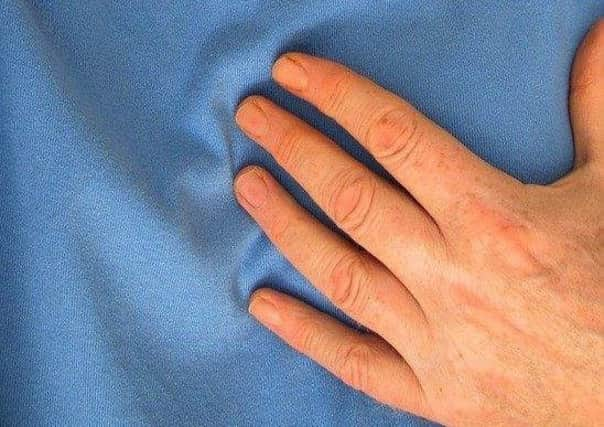New drug could ‘revolutionise’ heart attack treatment


The health of thousands of patients could be improved by the potential new treatment after researchers used stem cells to grow heart muscle tissue in a laboratory and replicated a “heart attack in a dish”.
By targeting a particular protein, they found they could block the chemical signals that lead to cell death and heart damage.
Advertisement
Hide AdAdvertisement
Hide AdIt is hoped the research, part funded by the British Heard Foundation (BHF), will be developed into a jab given to patients as they prepare to receive balloon angioplasty, which opens up the blocked artery that caused their attack.
Professor Metin Avkiran, BHF Associate Medical Director, said: “Coronary heart disease is the major cause of heart attacks and it kills 180 people in the UK each day.
“Finding a drug that could limit the death of heart muscle during and after a heart attack, and stop the decline towards heart failure, has been a target of research for decades.”
Heart attacks starve the organ of oxygen and cause the muscles to produce stress signals, which can cause the death of cells.
Advertisement
Hide AdAdvertisement
Hide AdThe heart may not be able to pump blood effectively as a result, which can lead to heart failure.
Improvements in care have boosted the number of people surviving heart attacks, and an estimated 900,000 people are currently living with heart failure in the UK.
In the new study, the researchers identified protein MAP4K4 by studying heart samples from people with heart failure. They showed it is activated in mice after a heart attack, and in heart cells and tissues when exposed to stress chemicals in the laboratory.
A drug which could potentially target this protein was developed by the team, and in mice it was found to reduce damage after a heart attack by around 60 per cent, they said.
Advertisement
Hide AdAdvertisement
Hide AdProfessor Michael Schneider, who led the research at the BHF Centre of Regenerative Medicine said: “There are no existing therapies that directly address the problem of muscle cell death and this would be a revolution in the treatment of heart attacks.
“One reason why many heart drugs have failed in clinical trials may be that they have not been tested in human cells before the clinic.
“Using both human cells and animals allows us to be more confident about the molecules we take forward.”
A family of potential new drugs is being developed off the back of the research. They will undergo safety testing and could be trialled in patients by 2021.
Advertisement
Hide AdAdvertisement
Hide AdThe study, funded by the BHF, the Medical Research Council and Wellcome, has been published in the journal Cell Stem Cell.
New NHS guidelines have also been published which will see thousands more people offered blood pressure-lowering drugs.
Draft guidelines published by the National Institute for Health and Care Excellence (NICE) recommend reducing the threshold at which it is offered.
Health officials said as many as 450,000 more men and 270,000 more women with high blood pressure could be eligible, although many may already be receiving treatment.